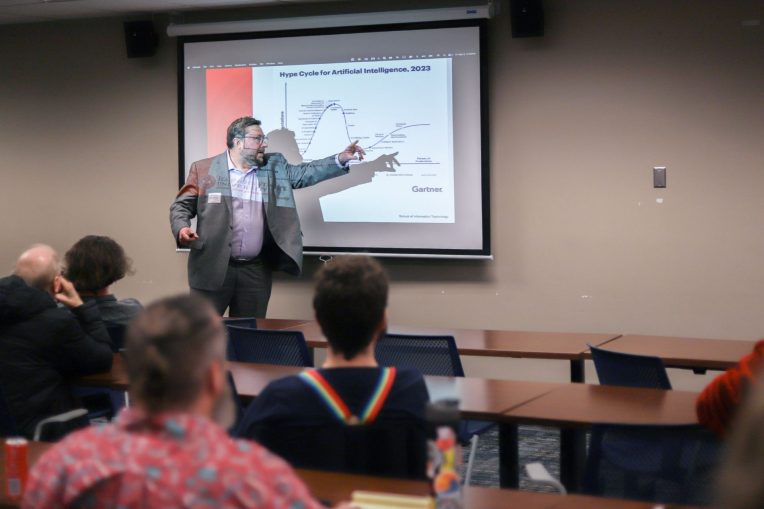As artificial intelligence (AI) continues to gain traction and widespread usage, many people are curious about its impact on students at Illinois State and the measures the University is implementing to guarantee the responsible use of this emerging technology.
The University has formed the Committee on the Responsible Use of Artificial Intelligence to create a strategic plan concerning the ethical usage of AI and to collaboratively address its increasing prevalence and adoption.
The 30-member group—comprising faculty, staff, and students—met for the first time April 5 in Stevenson Hall, where chairs Charles Edamala and Dr. J. Cooper Cutting outlined the committee’s goals.
“Ideally, what we would like ISU to do is at least come out with a draft of a statement of, ‘This is our stance on AI and the responsible use of AI at the University,'” said Cutting, Illinois State’s assistant vice president for Academic Planning.
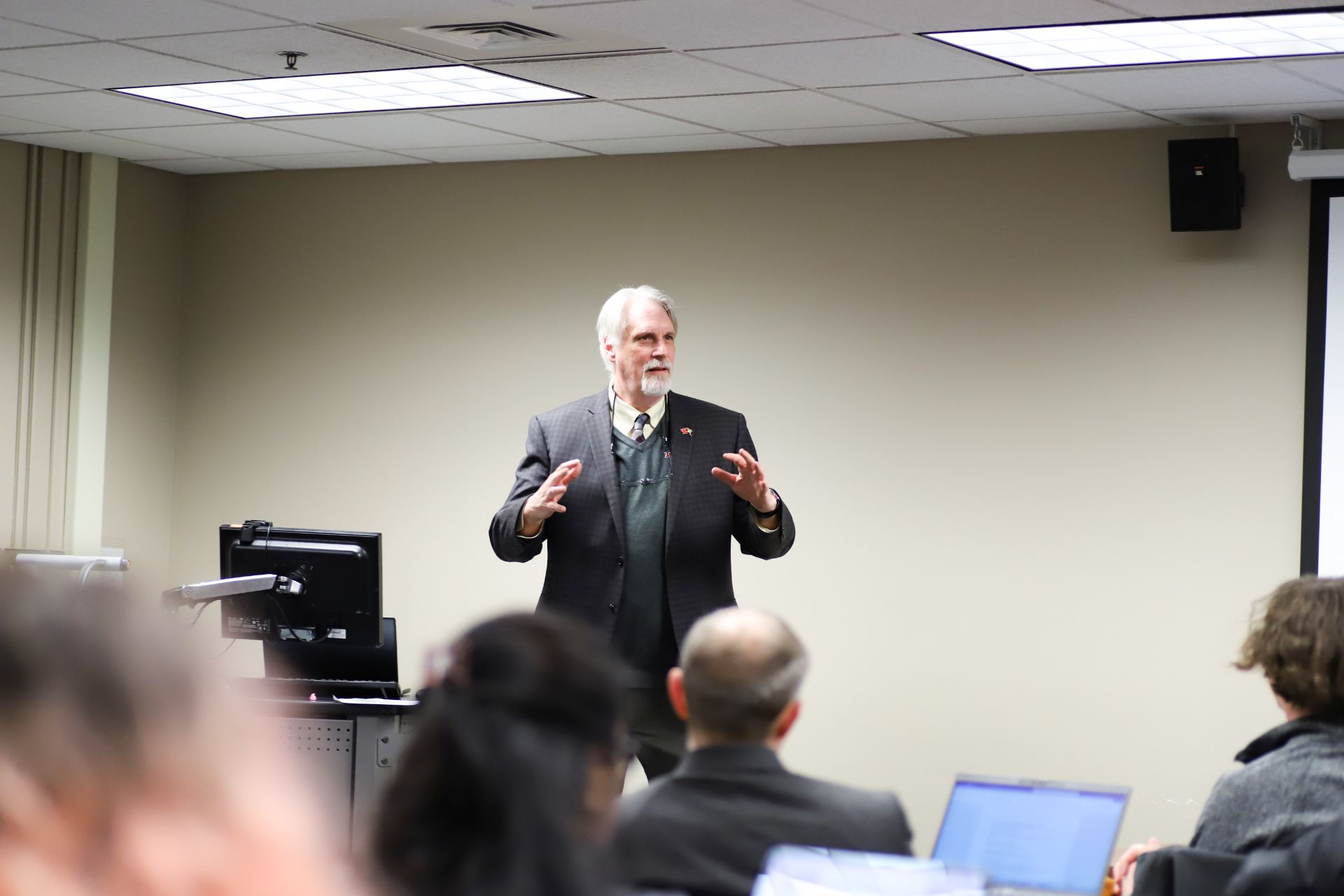
Edamala, Illinois State’s chief technology officer and associate vice president of Technology Solutions, talked about the importance of obtaining diverse perspectives during the conversation surrounding AI use.
“One of the issues that came in (regarding AI use on campus) was that the faculty wanted an answer, a one-liner. The students wanted a one-liner too, but there is no short answer. This had to be a deliberate, intentional discussion,” Edamala said.
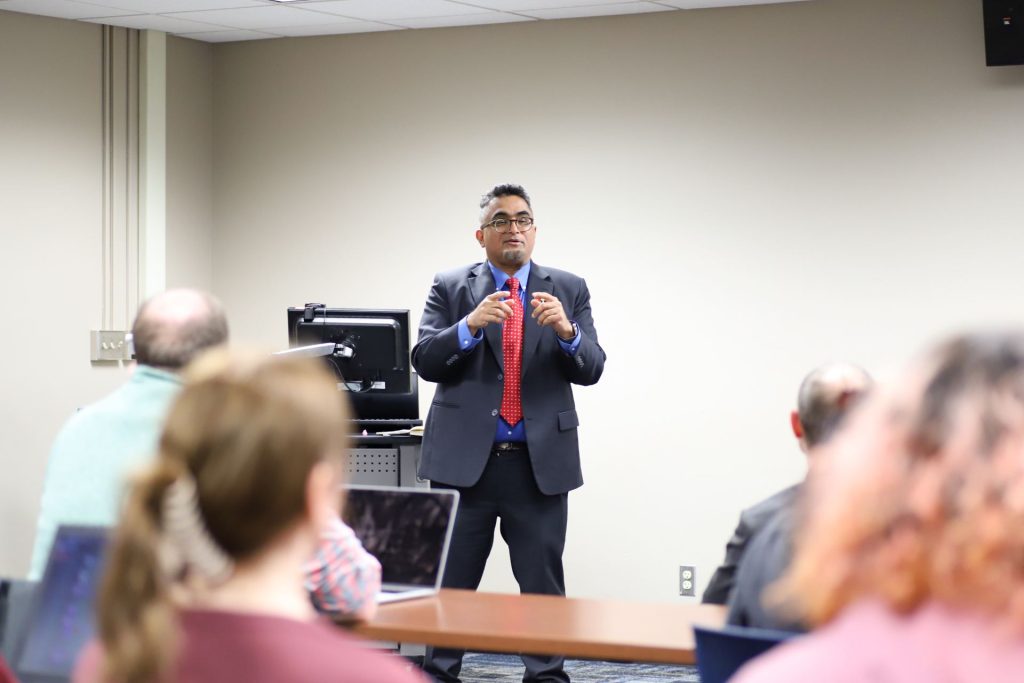
President Aondover Tarhule gave the opening remarks at the committee’s meeting. “My hope is that we’ll tread this frontier confidently,” Tarhule said. “Illinois State will serve as a model for harnessing the benefits and managing the potential risk of AI for the benefit of the campus community, and I am filled with anticipation for all we can accomplish to get in shaping the trajectory of AI at Illinois State.”
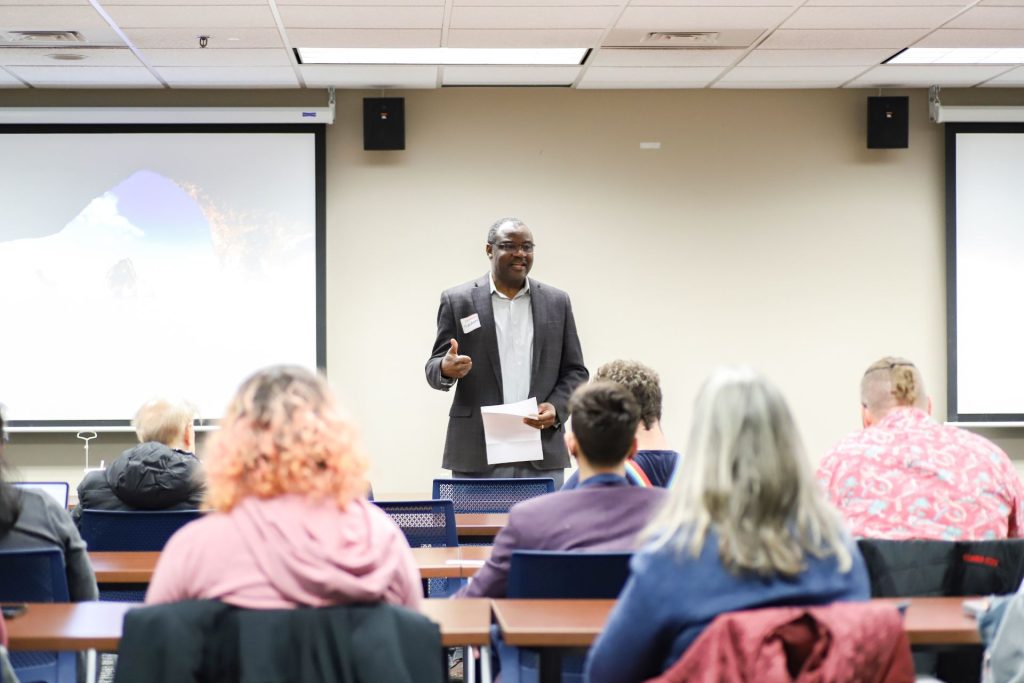
The committee intentionally included members from units across campus, extending well beyond the School of Information Technology. Cutting said demand to join the committee was high with 200 students expressing interest and wanting to contribute to the ongoing conversation.
“AI is impacting every facet of ISU, not just teaching, not just research, but it’s everywhere,” Cutting said. “And so we need stakeholders from across the University, across different disciplines. This committee is an attempt to bring those folks together, to think about how AI impacts ISU, what our stance is with it.”
Dr. Dmitry Zhdanov, the State Farm Endowed Chair of Cybersecurity, shared insights on AI and its trajectory during his keynote speech. He also discussed ethical AI usage, privacy, the capabilities of AI, and stressed the importance of implementing equity, diversity, and inclusion in AI software.
“When you think about responsible AI, I want you to think about fairness, accountability, and transparency,” Zhdanov said.
“Illinois State will serve as a model for harnessing the benefits and managing the potential risk of AI for the benefit of the campus community…”
President Aondover Tarhule
Zhdanov said AI is a tool like any other, and Illinois State should use it to its advantage. AI cannot substitute for human decision-making, he added.
“When people ask, ‘Is AI going to take my job?’ Probably not. That’s why human-AI systems are the way to go. We are going to learn how to interact with them and include them on university campuses,” Zhdanov said. “This really is an institutional collaboration, cross divisional collaboration, because that’s what it’s going to take for us to be successful here.”
Dr. Ani Yazedjian, provost and acting vice president for Academic Affairs and Provost, spoke about the committee’s aim to combat plagiarism and cheating through the use of AI but highlighted AI’s broader utility and capabilities. The committee intends to devise a roadmap outlining AI’s application across the entire University.
“I think a lot of the conversation towards the end of the fall semester was about cheating, but generative AI is so much more. It’s about how we do business. It’s about our business, our work as employees in that institution. It’s about how we prepare our students for the jobs they’re going to enter,” Yazedjian said.
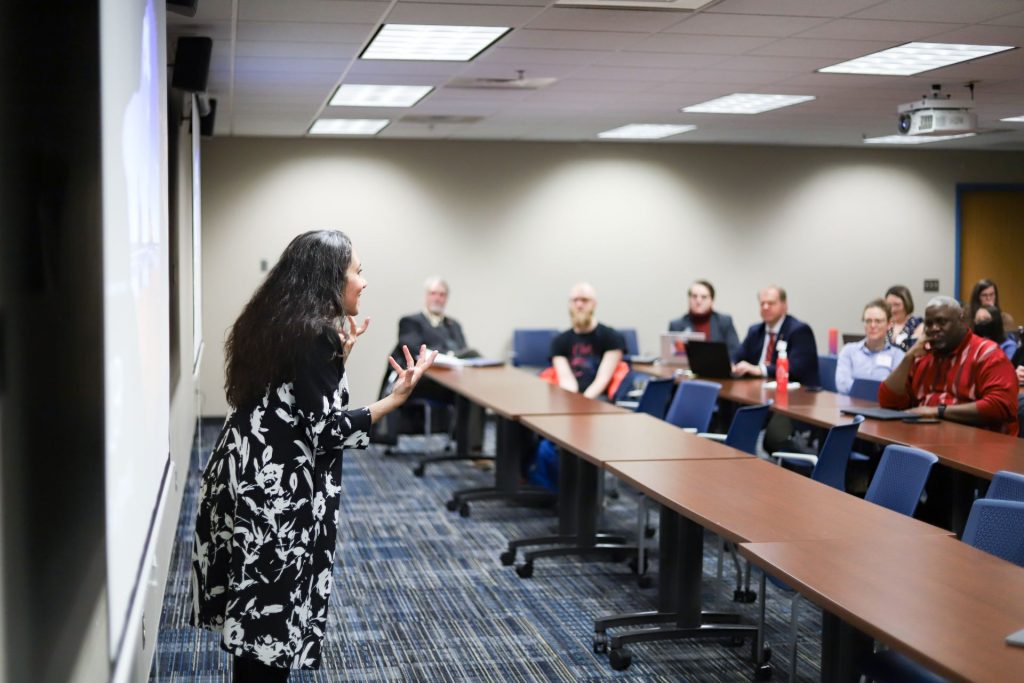
Following the speakers, the committee’s four subcommittees—research, operations and implementations, teaching, and policy and governance—met separately. The committee plans to meet monthly to brainstorm ideas and establish a roadmap for navigating and utilizing AI on campus.
“I’m glad to see such a rich diversity of individuals in this room because I think that’s what it’s going to take for us to be successful as an institution in how we approach AI,” Yazedjian said.
